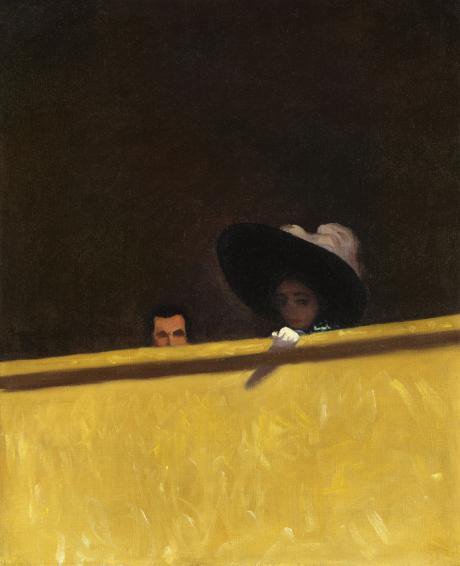Felix Vallotton
dal 1/10/2013 al 19/1/2014
Segnalato da
1/10/2013
Felix Vallotton
Galeries nationales du Grand Palais, Paris
Fire Beneath the Ice. In ten eloquently named sections, the exhibition explores the artist's aesthetic, social and political motivations and his complex personality: Idealism and Purity of Line; Flattened perspectives; Repression and Lies; A Photographic Eye; 'The Tragic Violence of a Black Spot'; Female Duets; Icy Eroticism; Opulent Substance; Modern Mythologies; This is War!

curators: Isabelle Cahn, chief curator at the Musée d’Orsay, Guy Cogeval, chairman of the Musées d’Orsay et de l’Orangerie, the Félix Vallotton Foundation in Lausanne represented by Marina Ducrey and Katia Poletti, curators
The exhibition is organised by the Musée
d’Orsay and the Réunion des musées nationaux-
Grand Palais, Paris, in joint collaboration with the
Van
Gogh
Museum,
Amsterdam
and
the
Mitsubishi Ichigokan Museum, Tokyo and Nikkei
Inc. With special support from the Musées d’art
et d’histoire, Genève and the Musée cantonal
des Beaux-Arts, Lausanne.
Félix Vallotton (1865-1925) had a foot in two centuries, two countries and two cultures. He was trained
at the Julian Academy in Paris, the cradle of many Post-Impressionist artists and Nabis. Before he
was thirty, he had won international renown for his woodcuts, small black and white images, often
ferocious in their irony. Before touring the world, they created a sensation in the Paris avant-garde,
winning Vallotton admission to the group of the Nabis and the friendship of its leading members.
After 1899, he left woodcutting for painting, leaving over 1700 paintings when he died in 1925. He
worked assiduously, in all genres: portraits, nudes, landscapes, still lifes and even history painting,
producing huge mythological or allegorical scenes, or compositions inspired by the spectacle of
modern warfare, in particular World War One. His style is easily recognisable by its slim paint layer,
refined colours, precise outlines, bold framings, and flattened perspectives borrowed from Japanese
prints and photography.
The Félix Vallotton. Fire Beneath the Ice exhibition takes a fresh look at the artist’s work. In ten
eloquently named sections, it explores the artist’s aesthetic, social and political motivations and his
complex personality: Idealism and Purity of Line; Flattened perspectives; Repression and Lies; A
Photographic Eye; “The Tragic Violence of a Black Spot”; Female Duets; Icy Eroticism; Opulent
Substance; Modern Mythologies; This is War!
In each section, the works are grouped by affinity with the theme rather than chronogically or by genre.
This transversal approach reveals the painter’s obstinate building of an highly personal and modern
style, but nevertheless rooted in the long tradition of art. The exhibition therefore presents not only
Vallotton’s best known masterpieces, but also paintings seldom or even never shown.
This thanks to the Musée d’Orsay’s rich collection, the exceptional loans granted by Swiss museums,
the generosity of the major American and European museums and that of many private collectors,
through the mediation of the Félix Vallotton Foundation in Lausanne.
The last major exhibition in Paris of the Swiss-born French painter and engraver goes back to 1979 at
the Petit Palais.
Exhibition design: Sylvain Roca and Nicolas Groult
Image: Félix Vallotton, La Loge de théâtre, le Monsieur et la Dame, 1909 Collection particulière © DR
Press contact:
Elodie Vincent 01 40134761 elodie.vincent@rmngp.fr
Florence Le Moing 01 40134762 florence.lemoing@rmngp.fr
Galeries nationales Grand Palais
Porte Champs-Elysées, 3, avenue du Général-Eisenhower 75008 Paris
open: every day from 10 a.m. to 7:30 p.m,
late night until 10 p.m. on Mondays and Fridays.
Exceptional closing on December 25
rates : 11 €, concession 7,5 €
free for visitors under 16 years
square 26-30: 4 people between 26 and 30 years : 30 €



